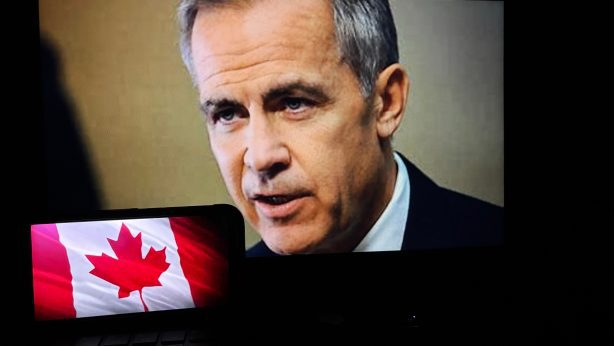Senator calls for accessible and affordable prescription drugs for all
This week’s edition of who is saying what about public health care is compiled by Pat Van Horne.
Senator speaks out for pharmacare for all
“Making prescription drugs more accessible means improving the consistency of access to drug coverage and needed medications across the country. Someone in rural P.E.I. or remote Northern communities should have access to the same diabetes medications as someone living in downtown Vancouver, Toronto, Montreal or here in the homeland of the Algonquin Anishinaabe Nation, also known as Ottawa. . . Making prescription drugs more affordable means reducing administrative and financial barriers for Canadians, including premiums, deductibles and co-pays. . . National pharmacare should address how to ensure that the prescription drugs people are taking are appropriate. . . Finally, national pharmacare should be universal. As the Senate’s Social Affairs Committee noted in its report entitled The Health of Canadians —The Federal Role during its landmark study, universality is one of the five national principles set out in the Canada Health Act. . . We must ensure that the principles of accessibility, affordability and the appropriate use of prescription drugs are applicable to all Canadians, regardless of where they live. . . Each of these principles will help guide a step-by-step approach to building national universal pharmacare in collaboration with provinces, territories and Indigenous peoples,” said Senator Kim Pate, in a speech published in the Senate Hansard, June 6, 2024
Patient groups want more input into pharmacare rollout
“Bill C-64 lays out groundwork for the first phase of a universal pharmacare program with potential to build a better framework. It would start a process to ensure Canadians have universal access to medicines, not just services of doctors, hospitals, and labs. Ours is the only country with a publicly funded health-care system that does not have universal coverage for prescription drugs. . .Will meeting the medication needs of the wider population lead to more basic coverage of fewer drugs? What about difficult-to-treat diseases? . . . Patient groups were consulted on how a drug gets added to the proposed national formulary as part of a research initiative. But their involvement should be built into the (pharmacare) program, not just a one-time pre-consultation,” said John Adams and Linda Wilhelm of the Best Medicines Coalition, Hill Times, June 3, 2024
Morgan says government message on pharmacare is ambiguous, confusing
“(Pharmaceuticals are) a critical and massive component in the health-care system, and yet this legislation doesn’t define terms such as what does ‘single payer’ mean? What does ‘universal’ mean? What does ‘first dollar’ mean? What does ‘public’ mean? . . .If we wanted to provide real-world evidence of what a single-payer public pharmacare program would look like on just the two drug classes that have been identified in this bill, we would do a different model than … [the one Holland] is committed to implementing, which is a fill-in-the gaps program for those drugs,” said Dr. Steve Morgan, CHC ally, University of British Columbia professor and well-known pharmacare expert who has advocated for a single-payer program for many years, Hill Times, June 10, 2024
Publicly-funded physiotherapy assessments in Manitoba dropped more than 85 per cent since 2017 Conservative cuts
“Previous research has shown that if people don’t get proper rehabilitative care, but also timely rehabilitative care, it can affect their recovery from surgery or from injuries, and that can result in longer term disability for people. . . We know things like chronic low-back pain, things like tendinitis, those things are very, very common, cause a lot of disability and decreased quality of life for people. Right now, those things aren’t covered at all,” said Joanne Parsons, an associate professor at the U of M College of Rehabilitation Sciences, The Winnipeg Free Press, June 8, 2024
AI or fax machines? Government bill aims to streamline, secure health data
“The fact that only 35 per cent of physicians can share information outside of their offices is entirely unacceptable. The fact that fax machines are still used is entirely unacceptable,” said Federal Health Minister Mark Holland, while introducing a bill in Parliament, to CTV, June 6, 2024
“The place where they heal us”: the 120-year story of Tsi Tehsakotitsén:tha, Kateri Memorial Hospital Centre
“My hope for the future is that we get more services to take care of our own people . . .The significance of the hospital is to be able to get your care within your community and for community members to be taken care of by community members as much as we can possibly do that,” said Valerie Diabo, current executive director of Kateri, the only health centre of its kind run by a First Nation, Kahnawà:ke’, in Quebec, CBC News, June 10, 2024
Nine recommendations for improving children’s health
“We must advocate with a unified voice across all professions and take action to address Canada’s overworked and deficient child and youth healthcare system. The population we serve, their families, and paediatric nurses across Canada are facing systemic trauma on a daily basis. It is critical that we come together using the Standing Committee on Health’s (HESA) child health study, and all tools at our disposal, to make child and youth health in Canada not just effective but groundbreaking,” said Jonathan Honsberger, president of the Canadian Association of Paediatric Nurses, in a news release, June 10, 2024
Selling out seniors care: Nursing homes disappearing to developers in Ontario
“The very idea of moving from a home close to family and friends, including support staff who cared for them, preyed on residents’ minds causing more stress to their aging bodies. . . While many reacted with anger and fear at first, trying to fight being taken away from their home of many years, this soon gave way to exhaustion and hopelessness. . .How many examples of private long-term care and retirement homes shutting down does the government have to see before their hearts break too?” said Seniors’ Advocate Barbara Chernin, The Toronto Star, June 8, 2024



